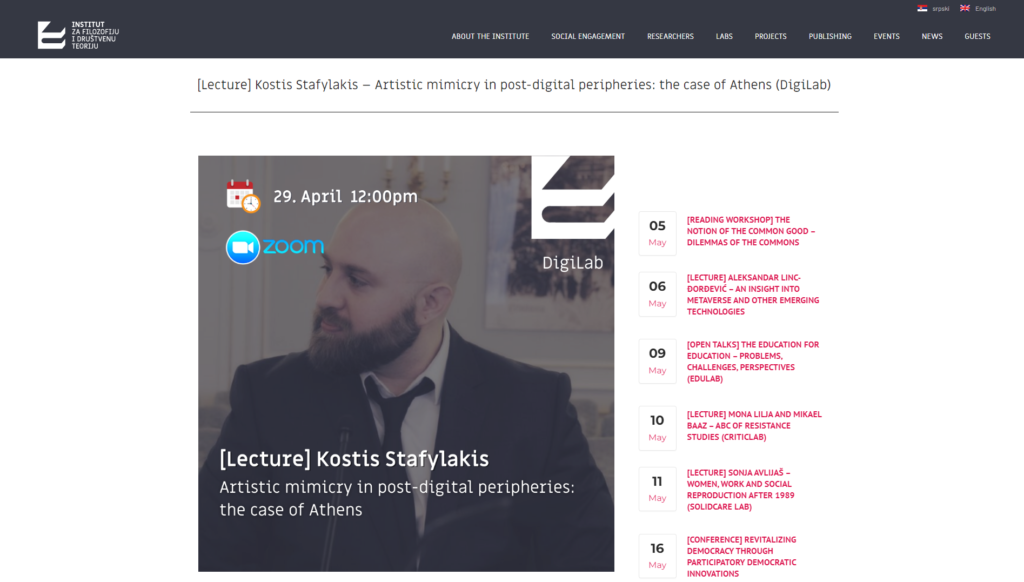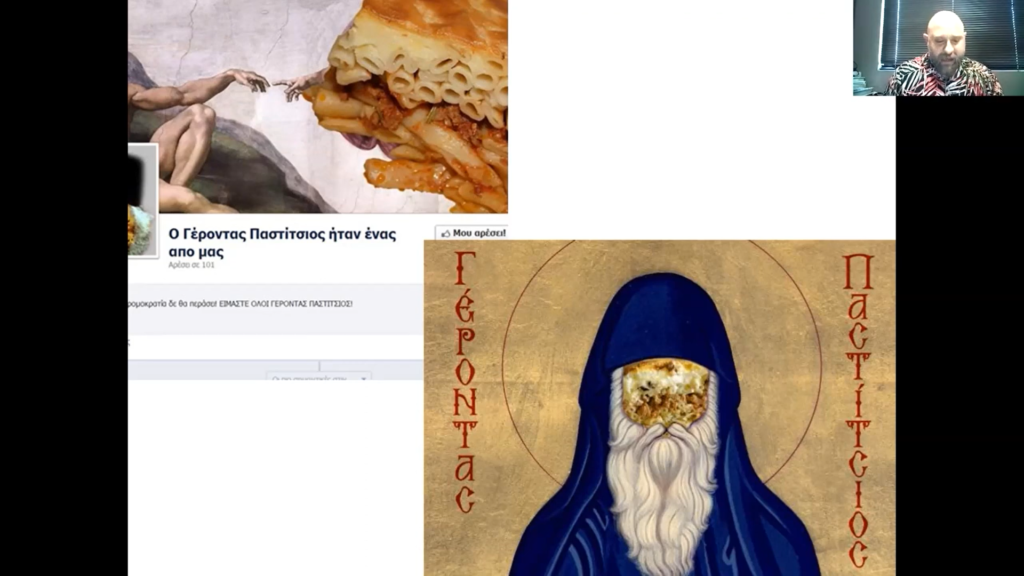Artistic Mimicry in Post-Digital Peripheries: The Case of Athens @ IFDT

A lecture at the Institute of Philosophy and Social Theory, University of Belgrade, 29 April 2022.
Description:
Around the time of Donald Trump’s accession to the American Presidency, internet culture underwent heavy scrutiny by analysts and critics who ventured to explain how wild trolling, anonymity, and neo-reactionary trends facilitated the ideological Reign of trumpism. In this fashion, post-internet aesthetics and, namely, the multifarious genre referred to as “post-internet art” was targeted by heavy criticism depicting it as complicit in the “post-fascist” zeitgeist. Art’s absorption of online reality, alongside its occasional accelerationist ethos of embracing online “alienation” was soon seen as a stigma against art’s very own mimetic habitus. Some critics invited their readers to practice cultural resistance against the “ideological quicksand” of the internet and its aesthetics alerting them to the “sociopathy” of the mid-2010s internet culture. Artistic practices that employ mimicry to instigate open and ambiguous re-interpretations of reality were outlined as socially dangerous, or “sadistic”. By labelling the sum of such practices as “affirmative”, those critics called for a return to negation, refusal, or sincerity as necessary aesthetic re-orientation. In this presentation I will argue that this particular criticism against post-internet art hides a deeper fear of mimesis that, actually, facilitates the colonization of an entire debate by the Alt-Right. Drawing from the experiences of Greek art and curating produced in the years of the financial crisis, I argue that art’s entanglement in post-digital peripheries poses no neat choices between affirmation and negation, necessitating the introduction of more hybrid and dialectic understanding of art’s social meaning.
For the institute’s link click here.

Excerpt from the talk:
Although there’s been an intense international interest on Art produced in Greece in between 2009 and 2020, the post-digital and post-internet aspect of locally produced art practices has been kept unaddressed, silenced, avoided. The international focus on the recent art of this troublesome balkan country depicts the place as a pre-digital territory, denying both its digital and post-digital life. And when some of us started to apply the term post-internet to things we were doing we were told by critics in Berlin, London and New York that we shouldn’t do so because post-internet art is now complicit with the reactionary aesthetics of the Alt-Right and we should revert to our own pre-digital versions of our selves. I’ll hereby try to account for the Greek Post-Digital. The Greek post-digital is a term I coined in some of my recent writings to assess the advent of post-digitality in Greece. It does not wish to suggest any cultural or ethnic idiom, it merely outlines the particularities of the proliferation of user-friendly digital platforms in late 00s Greece, around 2008-2009. My use of the term refers to the particular way in which the wild proliferation of digital platforms coincided with the unprecedented consequences of the financial crisis, namely the vast dislocation of social identities, political ideologies, traditional social networks and labor spaces. This pas de deux between social collapse and fast digitization is the Greek post-digital experience – the experience of a nuclear reactor.